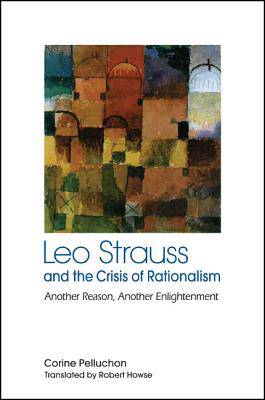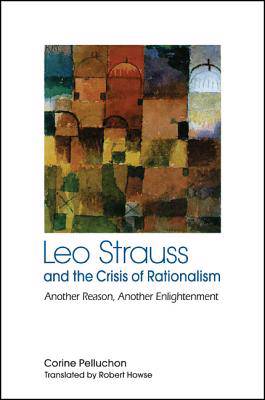
- Afhalen na 1 uur in een winkel met voorraad
- Gratis thuislevering in België vanaf € 30
- Ruim aanbod met 7 miljoen producten
- Afhalen na 1 uur in een winkel met voorraad
- Gratis thuislevering in België vanaf € 30
- Ruim aanbod met 7 miljoen producten
Omschrijving
Examines the German and Jewish sources of Strauss's thought and the extent to which his philosophy can shed light on the crisis of liberal democracy.
How can Leo Strauss's critique of modernity and his return to tradition, especially Maimonides, help us to save democracy from its inner dangers? In this book, Corine Pelluchon examines Strauss's provocative claim that the conception of man and reason in the thought of the Enlightenment is self-destructive and leads to a new tyranny. Writing in a direct and lucid style, Pelluchon avoids the polemics that have characterized recent debates concerning the links between Strauss and neoconservatives, particularly concerns over Strauss's relation to the extreme right in Germany. Instead she aims to demystify the origins of Strauss's thought and present his relationship to German and Jewish thought in the early twentieth century in a manner accessible not just to the small circles devoted to the study of Strauss, but to a larger public. Strauss's critique of modernity is, she argues, constructive; he neither condemns modernity as a whole nor does he desire a retreat back to the Ancients, where slaves existed and women were not considered citizens. The question is to know whether we can learn something from the Ancients and from Maimonides-and not merely about them.
Specificaties
Betrokkenen
- Auteur(s):
- Vertaler(s):
- Uitgeverij:
Inhoud
- Aantal bladzijden:
- 319
- Taal:
- Engels
- Reeks:
Eigenschappen
- Productcode (EAN):
- 9781438449678
- Verschijningsdatum:
- 1/02/2014
- Uitvoering:
- Hardcover
- Formaat:
- Genaaid
- Afmetingen:
- 163 mm x 234 mm
- Gewicht:
- 635 g

Alleen bij Standaard Boekhandel
Beoordelingen
We publiceren alleen reviews die voldoen aan de voorwaarden voor reviews. Bekijk onze voorwaarden voor reviews.








